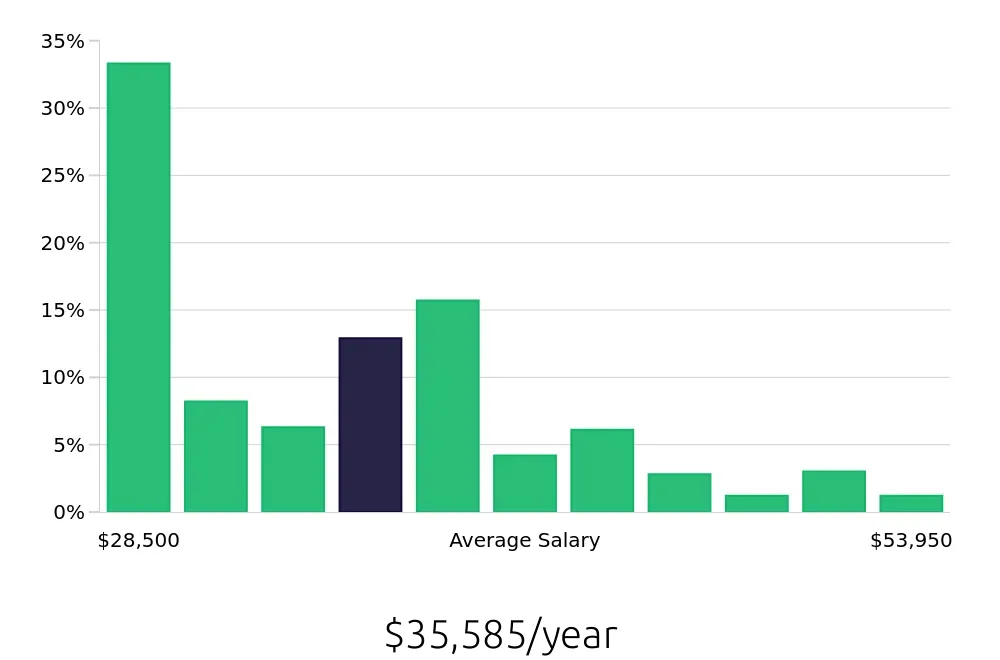What does a Inspection Clerk do?
An Inspection Clerk plays a key role in ensuring the quality and safety of products or services. This position involves checking products or materials against set standards. They must look for any flaws or issues that could affect quality. An Inspection Clerk needs a keen eye for detail and strong problem-solving skills. They often work in manufacturing, construction, or food and beverage industries.
Daily tasks for an Inspection Clerk include reviewing documents, conducting tests, and reporting findings. They use tools and equipment to measure dimensions and check material properties. It is important for them to maintain accurate records of their inspections. They communicate with other departments to ensure any issues are addressed. This role requires a commitment to maintaining high standards and ensuring compliance with regulations.
How to become a Inspection Clerk?
Becoming an Inspection Clerk offers a rewarding career path for those interested in quality control and regulatory compliance. The role involves examining products and services to ensure they meet certain standards. This career can be both fulfilling and stable for the right candidate.
Here is a straightforward outline to guide someone on how to become an Inspection Clerk:
- Complete high school education.
- Gain relevant experience.
- Obtain necessary certifications.
- Apply for Inspection Clerk positions.
- Continue professional development.
By following these steps, job seekers can pave the way to a successful career in inspection and quality assurance.
How long does it take to become a Inspection Clerk?
Becoming an Inspection Clerk can happen in a few different ways. Some people start with an associate’s degree or vocational training in a related field. This path often takes about two years. Others might start with on-the-job training. This can take less time, but you usually need some experience in a similar role.
Most Inspection Clerks have at least a high school diploma or GED. This alone can make you a good candidate for entry-level jobs. With experience, you can move up to more advanced positions. Job postings may ask for specific skills or experience. Taking extra courses can help you get these qualifications faster. Many people find that a mix of education and hands-on training works best.
Inspection Clerk Job Description Sample
An Inspection Clerk is responsible for inspecting and verifying the quality and compliance of products, materials, or services against established standards and specifications. They document findings, ensure adherence to regulatory requirements, and maintain records of inspections to support quality control and continuous improvement efforts.
Responsibilities:
- Conduct routine and non-routine inspections of products, materials, or services to ensure compliance with quality standards and specifications.
- Document inspection findings accurately and in a timely manner, maintaining records and reports for quality control and regulatory purposes.
- Collaborate with production, quality assurance, and other relevant departments to address and resolve quality issues or discrepancies identified during inspections.
- Perform audits and assessments of processes, procedures, and facilities to ensure adherence to safety, quality, and regulatory requirements.
- Conduct training sessions and provide guidance to employees on inspection procedures, quality standards, and best practices.
Qualifications
- High school diploma or equivalent required; associate's or bachelor's degree in a related field preferred.
- Previous experience in quality control, inspection, or a related role preferred.
- Knowledge of quality standards, regulations, and inspection techniques relevant to the industry.
- Strong attention to detail and ability to accurately document inspection findings.
- Excellent analytical and problem-solving skills with the ability to identify and address quality issues.
Is becoming a Inspection Clerk a good career path?
An Inspection Clerk plays a vital role in ensuring products and services meet quality standards. This job involves checking items for defects and compliance with regulations. Most Inspection Clerks work in manufacturing, construction, or retail environments. They use their keen eye for detail to maintain product quality and safety.
Starting as an Inspection Clerk can lead to a rewarding career. It offers opportunities to learn about various industries and gain specialized skills. This role can open doors to positions in quality control, management, or specialized inspection fields. Advancement often comes with experience and additional certifications.
Considering a career as an Inspection Clerk comes with both positives and challenges.
- Pros:
- Frequent interactions with different materials and products
- Opportunities to work in various industries
- Potential for career growth and advancement
- Cons:
- Can be a repetitive job, requiring strong attention to detail
- May involve long hours standing or working in uncomfortable conditions
- Requires a high level of accuracy and focus
This role suits those who enjoy a detailed and methodical approach to work. It also benefits individuals who can focus on tasks for extended periods. With the right attitude and skills, an Inspection Clerk can build a stable and fulfilling career path.
What is the job outlook for a Inspection Clerk?
Inspection Clerks play a vital role in ensuring quality control across various industries. These professionals examine products and materials to ensure they meet standards and regulations. The Bureau of Labor Statistics (BLS) reports that, on average, there are about 64,300 job positions available each year for Inspection Clerks. This consistent demand highlights the ongoing need for these skilled workers.
Looking ahead, job outlook for Inspection Clerks shows a slight decrease of 3.9% from 2022 to 2032, according to BLS data. Despite this, Inspection Clerks continue to be an integral part of many sectors. Their expertise remains valuable in maintaining safety and quality standards. While the number of job openings may decline slightly, experienced Inspection Clerks will still find numerous opportunities.
Inspection Clerks earn an average of $49,260 annually, with hourly wages averaging $23.68, as per BLS information. This compensation reflects the importance of their work in various industries. Job seekers interested in this role can expect to find competitive pay in this field. With the right skills and experience, Inspection Clerks can build a rewarding career.
Currently 28 Inspection Clerk job openings, nationwide.
Continue to Salaries for Inspection Clerk


